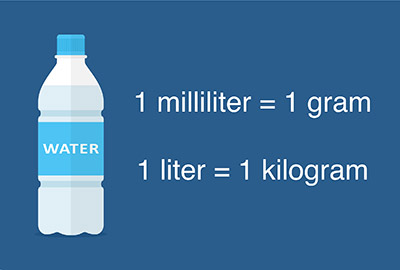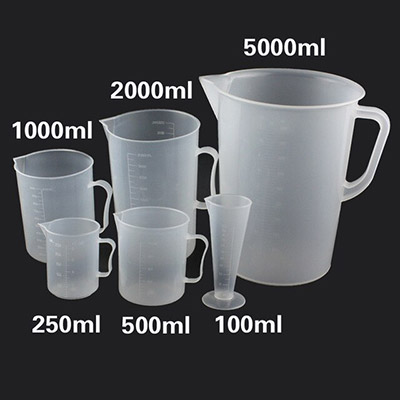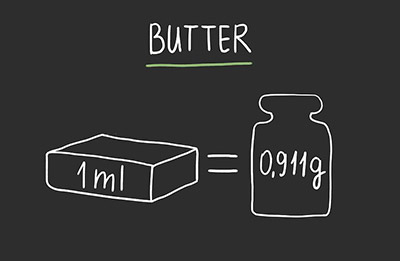While you may think that converting grams to milliliters is hard, it really isn’t. The truth is that in some cases, it depends on what you are weighting. But more on that later.

As a rule of thumb, in most cases, when you want to convert grams to milliliters you just need to know that 1 gram (g) = 1 milliliter (ml).
The Different Grams To Milliliters Conversions
As we already said above, the truth is that converting grams to milliliters is not always that simple. After all, and while with water, for example, the 1 g = 1 ml works well, this isn’t the same for all substances or ingredients. So, you really need to know what substance you are using so that you can then convert grams to milliliters.
Looking to convert 8 oz to ml?
Just think of corn syrup, for example. While you may not know, this is a heavy substance. In fact, one milliliter of corn syrup weighs almost 1.5 grams. On the other hand, you have cake flour. One milliliter of cake flour weighs around 0.4 grams. While these may seem exaggerated weighs, the truth is that there are substances or ingredients that weigh more than corn syrup as well as others that weigh less than cake flour.
Water-Based Substances

As we already mentioned above, water is one of the easiest ingredients to convert when you want to convert grams to milliliters. After all, 1 gram of water is equal to 1 ml of water.
So, as you can imagine, other substances or ingredients that are based on water tend to have a similar ratio. Some of them include:
- sea water: 1 milliliter of sea water weighs about 1.02 grams.
- milk: 1 milliliter of milk weighs about 1.03 grams.
While they aren’t exactly 1 gram, they are very close. So, it won’t make much of a difference with you are cooking or baking.
Learn how to convert 8 oz to ml.
Simple Conversions For Water-Based Substances
While we are mainly focusing our attention on converting grams to milliliters, it may be useful to know that:
1 gram (g) = 1 milliliter (ml) = 0.001 liters (l)
1 kilogram (kg) = 1000 milliliters (ml) = 1 liter (l)
1 milligram = 0.001 milliliters (ml) = 0.000001 liters (l)
1 milliliter (ml) = 1 gram (g) = 0.001 kilograms (kg)
1 liter (l) = 1000 grams (g) = 1 kilogram (kg)
Non-Water-Based Substances

As we already mentioned above, you will have a different ratio to convert grams to milliliters when you’re weighing non-water-based substances or ingredients. So, we decided to gather a couple of examples that we believe can be helpful:
- Sunflower Oil:
0.92g/ml: 1 ml = 0.92g;
1.09 ml/g: 1 g = 1.09 ml
- Sugar, Powder:
0.56g/ml: 1 ml = 0.56 g;
1.79 ml/g: 1 g = 1.79ml
- Sugar Granulated:
0.7g/ml: 1 ml = 0.7 g;
1.43 ml/g: 1 g = 1.43 ml
- Sugar, Beet:
0.8g/ml: 1 ml = 0.8 g;
1.25ml/g: 1 g = 1.25 ml
- Milk:
1.03 g/ml: 1 ml = 1.03 g;
0.97 ml/g: 1 g = 0.97 ml
Use our calculator to convert 8 oz to ml.
- Glycerine:
1.26 g/ml: 1 ml = 1.26 g;
0.79 ml/g: 1 g = 0.79 ml
- Flour:
0.57 g/ml: 1 ml = 0.57 g;
1.75 ml/g: 1 g = 1.75 ml
- Ethyl Alcohol:
0.79 g/ml: 1 ml = 0.79 g;
1.27 ml/g: 1 g = 1.27 ml
- Butter:
0.92 g/ml: 1 ml = 0.92 g;
1.09 ml/g: 1 g = 1.09 ml
- Beer:
1.01 g/ml: 1 ml = 1.01 g;
0.99 ml/g: 1 g = 0.99 ml
- Acetone:
0.79 g/ml: 1 ml = 0.79 g;
1.27 ml/g: 1 g = 1.27 ml